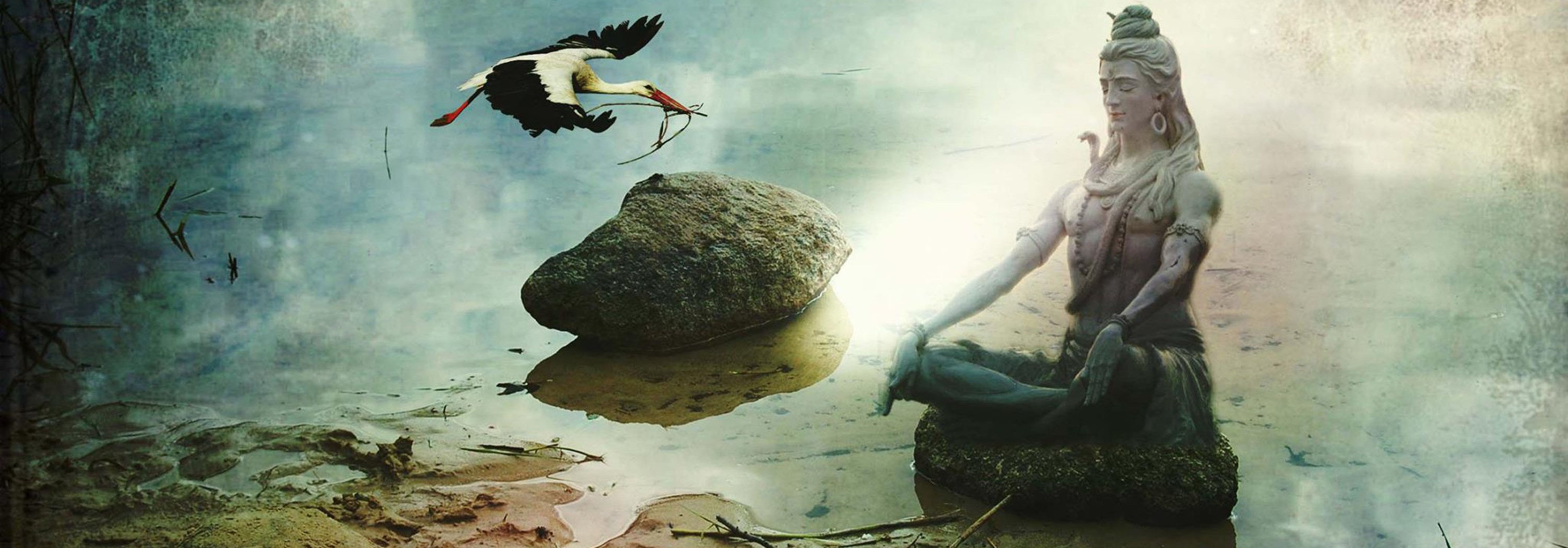We seem to be like flies caught in honey. Because life is sweet we do not want to give it up, and yet the more we become involved in it, the more we are trapped, limited, and frustrated. We love it and hate it at the same time. We fall in love with people and possessions only to be tortured by anxiety for them. The conflict is not only between ourselves and the surrounding universe; it is between ourselves and ourselves. For intractable nature is both around and within us. The exasperating ‘life’ which is at once lovable and perishable, pleasant and painful, a blessing and a curse, is also the life of our own bodies.
It is as if we were divided into two parts. On the one hand there is the conscious ‘I,’ at once intrigued and baffled, the creature who is caught in the trap. On the other hand there is ‘me,’ and ‘me’ is a part of nature—the wayward flesh with all its concurrently beautiful and frustrating limitations. ‘I’ fancies itself as a reasonable fellow, and is forever criticizing ‘me’ for its perversity—for having passions which get ‘I’ into trouble, for being so easily subject to painful and irritating diseases, for having organs that wear out, and for having appetites which can never be satisfied—so designed that if you try to allay them finally and fully in one big ‘bust,’ you get sick.
Perhaps the most exasperating thing about ‘me,’ about nature and the universe, is that it will never ‘stay put.’ It is like a beautiful woman who will never be caught, and whose very flightiness is her charm. For the perishability and changefulness of the world is part and parcel of its liveliness and loveliness. This is why the poets are so often at their best when speaking of change, of ‘the transitoriness of human life.’ The beauty of such poetry lies in something more than a note of nostalgia which brings a catch in the throat…
For the poets have seen the truth that life, change, movement, and insecurity are so many names for the same thing. Here, if anywhere, truth is beauty, for movement and rhythm are of the essence of all things lovable. In sculpture, architecture, and painting the finished form stands still, but even so the eye finds pleasure in the form only when it contains a certain lack of symmetry, when, frozen in stone as it may be, it looks as if it were in the midst of motion.
Is it not, then, a strange inconsistency and an unnatural paradox that ‘I’ resists change in ‘me’ and in the surrounding universe? For change is not merely a force of destruction. Every form is really a pattern of movement, and every living thing is like the river, which, if it did not flow out, would never have been able to flow in. Life and death are not two opposed forces; they are simply two ways of looking at the same force, for the movement of change is as much the builder as the destroyer. The human body lives because it is a complex of motions, of circulation, respiration, and digestion. To resist change, to try to cling to life, is therefore like holding your breath: if you persist you kill yourself.
Source: The Wisdom of Insecurity, by Alan Watts

